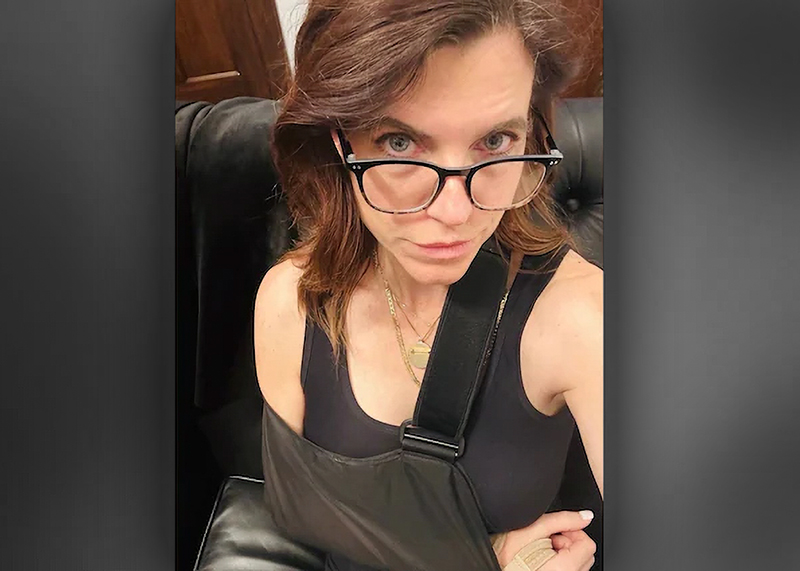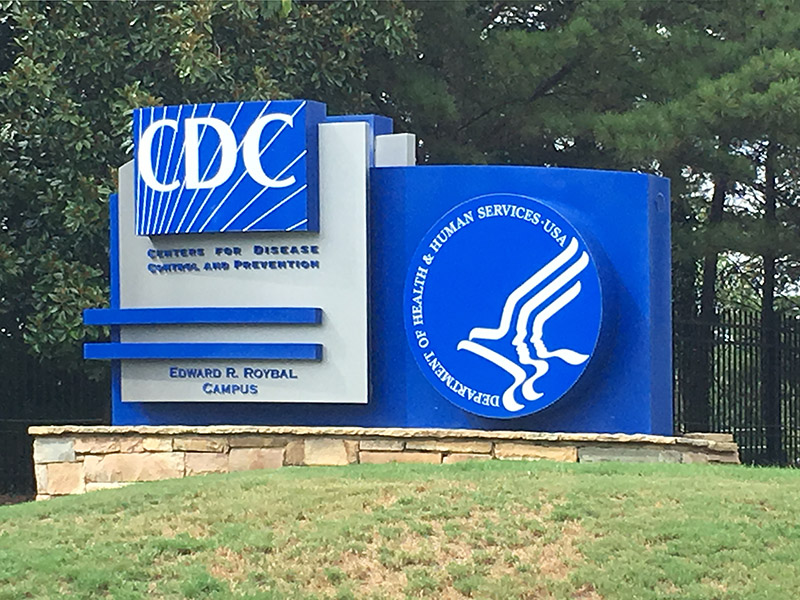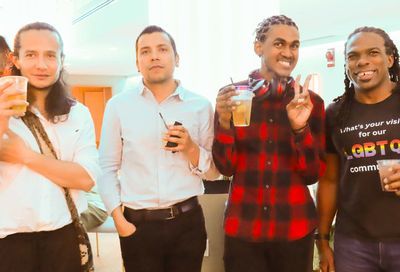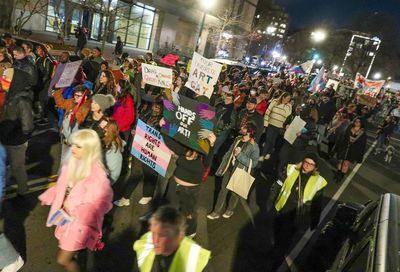Supreme Court sides with Catholic adoption agency refusing to place children with same-sex couples
High court unanimously finds, on narrow grounds, that nondiscrimination laws must be generally applicable and neutral to religion.

On Thursday, the U.S. Supreme unanimously ruled that the city of Philadelphia violated Catholic Social Services’ right to free exercise of religion after it refused to contract with the agency after learning it rejected same-sex foster parents.
Writing for the court, Chief Justice John Roberts found that the city’s actions had “burdened” CSS’s religious exercise by forcing it to violate its beliefs opposing homosexuality or approve relationships inconsistent with its beliefs.
Under Supreme Court precedent, laws that are neutral to religion and generally applicable can be found consistent with the Constitution, even if they burden religion. But the high court found that Philadelphia’s nondiscrimination policy was not generally applicable, as it allows for exemptions to the policy for some child placement agencies. Philadelphia also failed to show that it had a compelling interest in refusing to grant Catholic Social Services an exemption from its nondiscrimination policy.
“No matter the level of deference we extend to the City, the inclusion of a formal system of entirely discretionary exceptions in [its standard foster care contracts] renders the contractual nondiscrimination requirement not generally applicable,” Roberts wrote in the opinion.
“The City maintains that certification [of prospective foster parents] is one of the services foster agencies are hired to perform, so its attempt to backtrack on the reach of [its standard contracts] is unavailing. Moreover, the City adopted the current version of [its contracts] shortly after declaring that it would make CSS’s obligation to certify same-sex couples ‘explicit’ in future contracts…confirming our understanding of the text of the provision,” Roberts wrote.
Roberts also rejected arguments by the city of Philadelphia that child placement agencies should be treated as public accommodations, noting that certification is not granted to every couple seeking to become foster parents, and thus is not widely “available to the public” in the way that a hotel, restaurant, or swimming pool is.
“Certification as a foster parent…is not readily accessible to the public. It involves a customized and selective assessment that bears little resemblance to staying in a hotel, eating at a restaurant, or riding a bus. The process takes three to six months. Applicants must pass background checks and a medical exam. Foster agencies are required to conduct an intensive home study during which they evaluate, among other things, applicants’ ‘mental and emotional adjustment,’ ‘community ties with family, friends, and neighbors,’ and ‘[e]xisting family relationships, attitudes and expectations regarding the applicant’s own children and parent/child relationships,'” Roberts noted.
“Such inquiries would raise eyebrows at the local bus station. And agencies understandably approach this sensitive process from different angles. As the City itself explains to prospective foster parents, ‘[e]ach agency has slightly different requirements, specialties, and training programs.’ … All of this confirms that the one-size-fits-all public accommodations model is a poor match for the foster care system,” he added.
“Once properly narrowed, the City’s asserted interests are insufficient,” Roberts concluded, even while acknowledging the city might have an interest in ensuring all foster parents are treated equally.
“Maximizing the number of foster families and minimizing liability are important goals, but the City fails to show that granting CSS an exception will put those goals at risk. If anything, including CSS in the program seems likely to increase, not reduce, the number of available foster parents. As for liability, the City offers only speculation that it might be sued over CSS’s certification practices. Such speculation is insufficient to satisfy strict scrutiny…particularly because the authority to certify foster families is delegated to agencies by the State, not the City,” wrote Roberts.
“That leaves the interest of the City in the equal treatment of prospective foster parents and foster children. We do not doubt that this interest is a weighty one, for ‘[o]ur society has come to the recognition that gay persons and gay couples cannot be treated as social outcasts or as inferior in dignity and worth,'” Roberts added, quoting part of the high court’s decision in the Masterpiece Cakeshop case, which dealt with a baker’s right to refuse to bake a cake for a same-sex wedding. “On the facts of this case, however, this interest cannot justify denying CSS an exception for its religious exercise.”
The high court’s decision was more narrow than conservative activists had hoped for and LGBTQ rights advocates had feared, insofar as it did not strike down the court’s prior precedent, established in a 1990 case known as Employment Division v. Smith, that allowed for neutral and generally applicable laws. Social conservatives have long advocated for overturning that precedent and not allowing the existence of any nondiscrimination laws, particularly regarding the recognition of LGBTQ rights, that might even indirectly infringe on a person or agency’s religious beliefs.
Roberts’ rationale for narrowly siding with Catholic Social Services was embraced by the court’s three liberal justices — Stephen Breyer, Sonia Sotomayor, and Elena Kagan — as well as Trump appointees Brett Kavanaugh and Amy Coney Barrett. Justices Clarence Thomas, Samuel Alito and Neil Gorsuch agreed with the result of the case, but argued that the high court should have gone further and considered overturning the ability of states or municipalities to adopt any nondiscrimination laws that burden religious exercise.
Writing for the trio, Alito complained that Roberts’s narrow reasoning will make the court’s actions on Thursday temporary at best.
“This decision might as well be written on the dissolving paper sold in magic shops,” Alito wrote. “The City has been adamant about pressuring CSS to give in, and if the City wants to get around today’s decision, it can simply eliminate the never-used exemption power.”
Alito attacked the crux of rationale behind the Employment Division v. Smith decision — authored by the now-deceased archconservative Justice Antonin Scalia — saying that the case “abruptly pushed aside nearly 40 years of precedent and held that the First Amendment’s Free Exercise Clause tolerates any rule that categorically prohibits or commands specified conduct so long as it does not target religious practice.”
“Even if a rule serves no important purpose and has a devastating effect on religious freedom, the Constitution, according to Smith, provides no protection. This severe holding is ripe for reexamination,” Alito said, providing a window into the aims of socially conservative groups and a glance at the activist agenda that could be pursued by a more conservative Supreme Court, packed with additional Republican nominees, in the future.
LGBTQ organizations largely panned the court’s decision, even while acknowledging the narrowness of it, which allows Philadelphia and other governments to go back and eliminate exemptions to nondiscrimination policies, at least as it pertains to contracting with child placement agencies.
“Though today’s decision is not a complete victory, it does not negate the fact that every qualified family is valid and worthy — children deserve a loving, caring, committed home,” Alphonso David, the president of the Human Rights Campaign, said in a statement. “We celebrate the LGBTQ families who are dedicated to providing homes to the thousands of children in the child welfare system. Yet we know there is more work that must be done to ensure that the best interest of the child is always prioritized, including through family reunification. And there is more work to be done to ensure that LGBTQ people do not face discrimination anywhere in the country in every aspect of public life — our next step is to pass the Equality Act.”

In a news release, HRC noted that the court’s decision — especially if it had adopted the Alito-Thomas-Gorsuch approach of overturning precedent — could have had a “sweeping, harmful impact” by allowing LGBTQ foster parents, as well as interfaith couples, single parents, divorcees, or religious minorities, to be discriminated against.
“The biggest barrier to placing children with families is a lack of qualified prospective parents,” the organization noted. “If the Court had given taxpayer-funded agencies a license to discriminate, thereby limiting the pool of prospective parents for no legitimate reason, this would further shrink the pool of qualified prospective parents.”
According to polling by the Public Religion Research Institute, nearly 7 in 10 Americans oppose allowing religiously-affiliated agencies that receive taxpayer funding to refuse to place children with qualified same-sex couples seeking to be foster parents. Additionally, research has shown that LGBTQ youth are overrepresented in the foster care system. As such, placing children with families that meet a certain religious test or criteria could potentially place LGBTQ-identifying children at risk of discrimination and mistreatment — including potentially being forcibly subjected to conversion therapy — while in foster care.
DignityUSA, an organization of Catholics advocating for full inclusion of LGBTQ people in the Catholic Church and the larger society, blasted the court’s decision, which will allow some faith-based organizations providing child placement services to turn away prospective parents whose religious beliefs or practices do not conform to an agency’s expectations.
“Today, the well-being of our country’s most vulnerable children has been sacrificed to preserve tax-payer funded discrimination for a powerful group of religious institutions,” Marianne Duddy-Burke, the executive director of DignityUSA, who is also an adoptive and foster parent, said in a statement.
See also: Congress finds Trump administration gave taxpayer dollars to anti-LGBTQ foster care agencies
“The Supreme Court just decreased the number of homes available to our youth in foster care, making what was already a crisis worse. Same-sex couples are seven times more likely than straight couples to adopt or be foster parents and are more likely to have trans-racial families,” Duddy-Burke added. “This ruling means tens of thousands of children may never have a family to love and support them.”
She also warned that the court could — and likely will — use this rationale to extend the same principle to all sorts of social services, thereby allowing discrimination against LGBTQ people, those of minority faiths, or people whose marriages or relationships are deemed “morally questionable” in the provision of services like shelter, food, health care, addiction treatment, or education.
“Catholics like me, and other people of faith, take great pride in the vital social services religiously affiliated organizations have provided for decades. However, we also know that in a diverse society like ours, we need to offer these services to everyone,” Duddy-Burke added. “Most Catholics and other believers will find this ruling to be a violation of their deeply held principles. We know that it is our duty to care for the vulnerable — the widow, the orphan. That is much more important than protecting the doctrine of any particular denomination.”
Allison Gill, the vice president for legal and policy at the civil rights organization American Atheists said the court’s decision “strengthened the resolve of those seeking the special right to discriminate because of their religious beliefs” and built upon several other problematic Supreme Court decisions, all of which resulted in favorable rulings for people and organizations citing “religious freedom” as justification for their discriminatory actions.
“CSS sought something radical: They wanted to require the city to contract with them, but only on their terms — and sadly, they succeeded,” Gill said. “With this decision, the Court has continued to chip away at the core principle that laws should apply to everyone, regardless of religion. Whenever conflicts arise, the outcome too often favors conservative Christian outcomes, even if it twists the law in knots or contradicts fundamental legal principles. The Supreme Court keeps creating new rules that conveniently allow certain religious interests to always win.”

Family Equality, an organization advocating for families headed by same-sex couples, noted that state and local governments could immediately take steps to prevent agencies receiving taxpayer dollars from discriminating against prospective parents. But it also noted, on a larger scale, that the remedy for those upset by today’s decision is to push for congressional passage of the Equality Act, which would prohibit discrimination against LGBTQ people, and the John Lewis Every Child Deserves a Family Act, which would explicitly bar anti-LGBTQ discrimination by child placement agencies in the adoption and foster care system.
“While today may have been a loss for the City of Philadelphia, it was a victory for the principle that nondiscrimination protections that our families depend upon are valid and enforceable when properly implemented,” Stacey Stevenson, the CEO of Family Equality, said in a statement. “Today’s decision once again affirms that state and local governments can maintain laws that protect everyone — including LGBTQ+ youth, families, and prospective parents — from discrimination in government services.”
But David Flugman, a partner with Selendy & Gay PLLC, whose practice focuses on the advancement of LGBTQ rights — and who authored an amicus brief siding with the city of Philadelphia — echoed Alito’s warning that the high court’s decision on Thursday will not be the final say on the matter, particularly with conservatives signaling their wish to upend existing precedent.
“Today the Supreme Court held, on narrow, technical grounds, that the City of Philadelphia’s attempt to ensure that Catholic Charities abide by the same nondiscrimination provisions applicable to all other city contractors could not withstand Catholic Charities’ religious right to refuse to screen loving same-sex couples to act as foster parents,” Flugman said in a statement.
“The Court did not take up Catholic Charities’ invitation to scuttle the 30 year-old test for free exercise claims that was announced in Employment Division v. Smith, which held that a neutral law of general applicability could survive even if it burdens religious practice. What is clear from the decision today is that there are at least 6 votes on this Court to overturn Smith — the only question is what test would replace it?” he added.
“Today’s opinion is sure to invite even more litigation on this issue and it is quite likely that the Court will soon be called upon to once again determine the balance between free exercise of religion and myriad other constitutional rights.”
See also:
U.S. Department of Education confirms transgender students protected by federal law
Hungary passes law banning schools and media from talking about LGBTQ people
Brazilian gay man gang-raped, forced to carve anti-gay slurs into body in ‘barbaric’ attack
Support Metro Weekly’s Journalism
These are challenging times for news organizations. And yet it’s crucial we stay active and provide vital resources and information to both our local readers and the world. So won’t you please take a moment and consider supporting Metro Weekly with a membership? For as little as $5 a month, you can help ensure Metro Weekly magazine and MetroWeekly.com remain free, viable resources as we provide the best, most diverse, culturally-resonant LGBTQ coverage in both the D.C. region and around the world. Memberships come with exclusive perks and discounts, your own personal digital delivery of each week’s magazine (and an archive), access to our Member's Lounge when it launches this fall, and exclusive members-only items like Metro Weekly Membership Mugs and Tote Bags! Check out all our membership levels here and please join us today!























You must be logged in to post a comment.